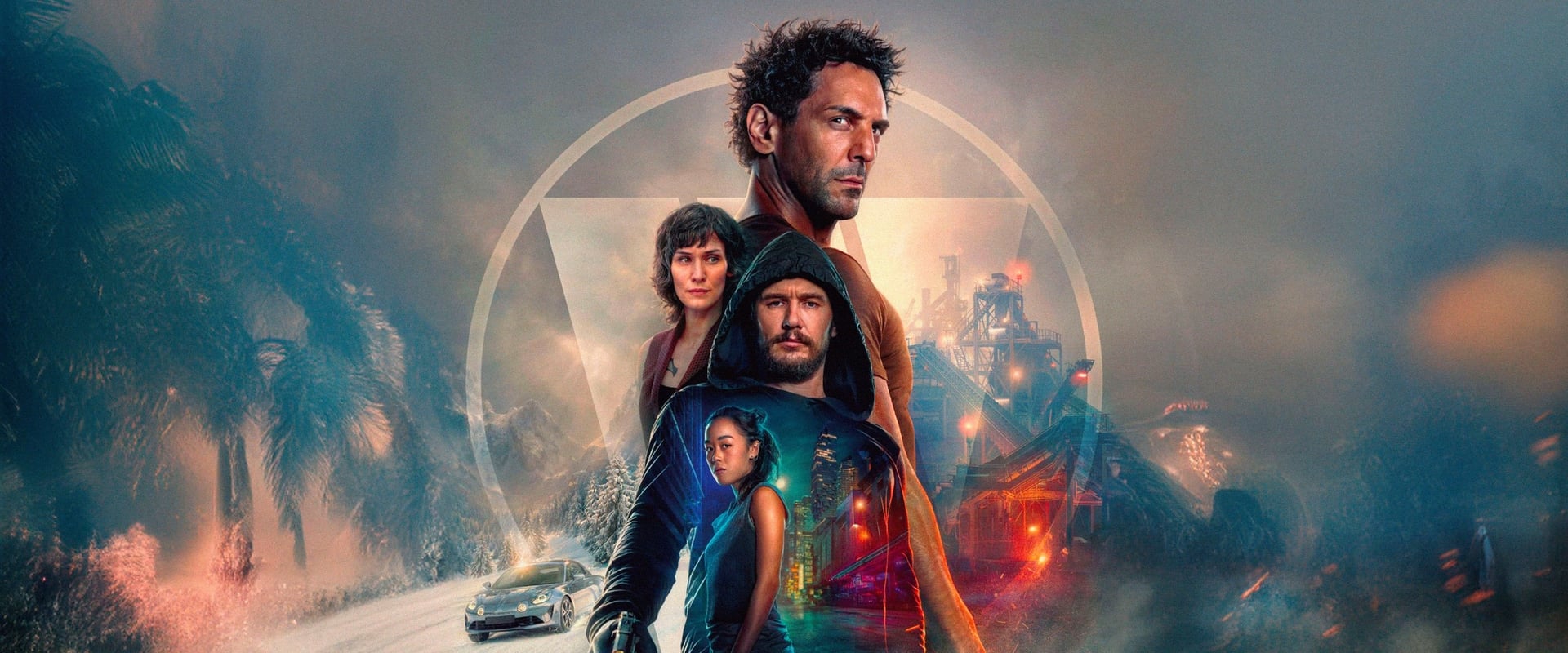There are times, guiltily, when you press on with a franchise not out of hope but out of a kind of cinematic masochism—a need, maybe, to see how low the bough bends before it snaps. With Largo Winch: The Price of Money, we don’t get the snap; we get the soft, damp thump of a weary branch coughing up another mediocre fruit, doomed to rot at our feet. And yet, like any movie masochist, I brushed off my sense of déjà vu, clung to my last embers of fondness for Tomer Sisley’s grifter-boy charm, and hit “play,” half in mockery, half in slender faith. What followed wasn’t so much disastrous as dispiriting, an ill-advised reunion tour playing to an empty barroom.
If the original Largo Winch had bursts of inventive, globe-hopping gusto and the second was a flat-out belly flop—Hollywood dreams drowning in lukewarm French canal water—then this third outing is the sound of a franchise wandering lost in the weeds, following the ghost impressions of a map to nowhere. The new director, Olivier Masset-Depasse, fancies himself a ringleader, but instead we get a circus with the tent falling down, and the lions half-awake. The plot descends, and quickly, into the kingdom of the cockamamie: Largo’s son—previously unseen and, let’s be honest, unsuspected—is kidnapped and becomes the pretext for a chase. Cue the existential agony! Except don’t cue it, because the result has less emotional heft than a balloon animal.
And what a chase: Largo, framed for murder, escapes from a cell with an underage girl in tow—meant, presumably, to gin up a mismatched “buddy” dynamic, but landing somewhere south of Saturday-morning cartoon and north of babysitting mishap. The script hurls us across continents, dodging logic as often as bullets, and gathers the usual plastic sacks of genre detritus: assassins in leather jackets, boardroom conniptions, tech-guru villains, and, yes, the ultimate insult—a “bad investment” threatening to topple a $50 billion empire. In the Largo universe, companies disintegrate at the suggestion of fiscal imprudence; I half-expected a henchman to storm the vault with a PowerPoint presentation.
Tomer Sisley still looks ready to leap off rooftops—he’s the playful cheese left out too long in the sun: a little pungent, but still the best thing on offer here. He’s asked to do the heavy lifting—to inject vitality into what is, essentially, leftover plot sludge pressed into action-sequence patties. He vaults and pouts, hoping to pass for Jean-Paul Belmondo swaggering through a Netflix bake sale, but the script is dead-set on smothering him. What spark was left fades as the movie stews in its own gray juices.
Enter James Franco, the American guest star flown in as villain and, more importantly, as cheese garnish—processed, sliced, and inescapably flavorless. Dubbed (oh, the pain, the agony—the sheer disrespect), Franco’s baddie is all sharp suits and no menace, his lines dubbed with the energy of last call at the airport lounge. It’s a role that could be played by a napkin draped over a wine glass, and deliver the same emotional punch.
There’s some small compensation in Élise Tilloloy as Bonnie—the only member of the cast with the timing and sparkle not just to survive but to momentarily lift the movie above its torpor. Her comic rhythm, her self-aware snap: for fleeting moments, you remember how much fun this series could have had, had it ever believed in letting itself be genuinely silly.
Masset-Depasse’s idea of “gear shift” is to string together chase scenes that seem shot on leftover GoPro footage, garnish them with discount CGI, and mistake noise for suspense. Few films have mistaken movement for momentum so completely. Emotional stakes? You’ll find more in a student loan contract. The dialogue does nothing but file off further layers of hope—each quip a dim echo of a smarter franchise (“Taken,” “John Wick,” “Bourne”) that actually works for its popcorn.
Is it fair to keep going at a franchise past its prime? Maybe. But Largo Winch: The Price of Money is the kind of film that proves the theory of diminishing returns—if the first was a modest continental adventure, the second a wet dishrag, the third is a cough in an empty theater. All the familiar ingredients—stuntwork, glitzy Euro-locales, silk-suited power-brokers—are blended with the flavorless sameness of a reboot nobody asked for. The result: a lesson in how to snuff the last flicker of intrigue from a once-promising pulp.
Do yourself a favor: spend your time, your hard-won money, even your nostalgia elsewhere. This isn’t redemption; it’s a mercy killing best undertaken offscreen. When even Tomer Sisley can’t fight his way out, you know it’s time for the final curtain. The franchise doesn’t just limp to a close—it passes quietly, mourned only by its own credits.


